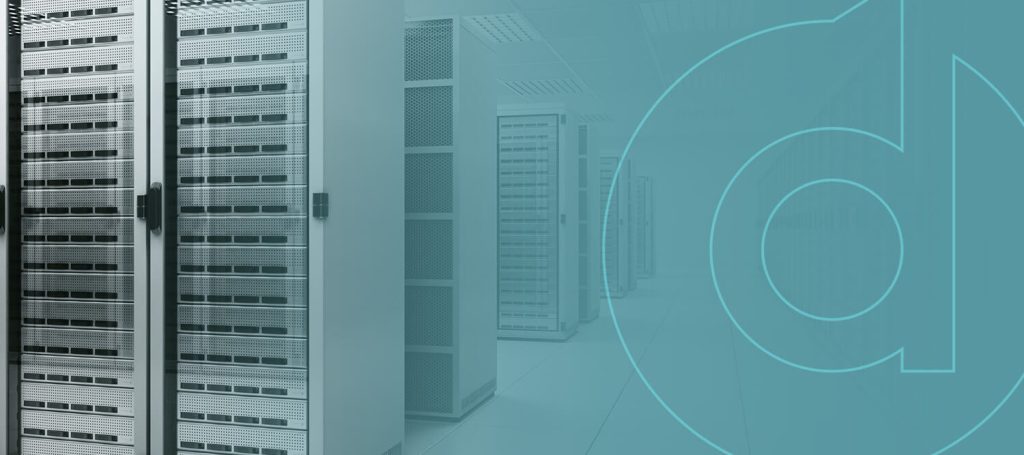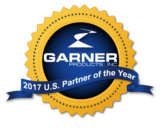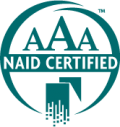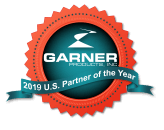
How Often Should a Clean Room Be Cleaned?
Clean rooms are a vital component of many tech and research industries. These secure environments are designed to protect raw, private data from contaminants and debris. Clean rooms can also help you control environmental factors that could impact your business operations, such as pressure, temperature, humidity and flow rate.
Microbes and air particles accumulate over time in any space, which can affect the productivity and functionality of your machines. Moreover, contamination can reduce the service life of your equipment. Clean rooms require a highly detailed cleaning routine to eliminate all potential disturbing influences. How often you should clean your clean room depends on your classification.
Clean Room Classifications and Industry Standards
Depending on what they’re used for, clean rooms must adhere to certain standards to mitigate the risk of biocontamination. However, these standards vary depending on their function. For instance, a pharmaceutical clean room will have different standards than a data center clean room.
Cleaning schedules and clean room layouts will also vary by industry. Clean rooms are classified by their cleanliness according to the International Standards Organization (ISO). Clean rooms may fall under nine different ISO classifications.
These standards determine how many particles of a certain size are found in the air within a cubic meter. For example, a Class 1 clean room has the least number of particles and, therefore, the highest level of cleanliness. A Class 1 clean room would be referred to as the golden standard for a particle-controlled environment. Alternatively, a Class 9 clean room indicates high levels of particles and low cleanliness. ISO standards can also act as guidelines for facilities to properly design and construct a clean room for their needs.
In addition to ISO classifications, clean rooms must also abide by various industry-specific standards, which may require specialized equipment for cleaning. The higher the ISO rating, the higher the level of sanitation required to minimize particle interference.
While meeting ISO standards is voluntary, compliance can improve business operations and reputation. Regulatory authorities often refer to ISO standards as indicators of compliance as they are highly regarded.
Importance of Clean Room Maintenance
Clean rooms in data centers often involve loading assembled data, encryption, access restriction and protecting sensitive customer data. Effectively cleaning and disinfecting your clean room can prevent particles from reaching the surface of your machinery and equipment.
While particulate contamination may not immediately affect your equipment, it can create a steady disturbance over time that leads to a breakdown. Likewise, particulates on the walls, floors and work surfaces can also reach your equipment.
Before a breakdown or shutdown occurs, your data center will likely experience various problems, such as interrupted operations or inefficiency. Accumulated dust particles and debris can even result in combustion. Such challenges may produce significant downtime and expenses. In some cases, poor clean room maintenance in a data center can cause issues with data privacy.
Mitigating Contamination and Downtime
You can reduce the risk of contamination and keep your data safe by maintaining a thorough cleaning routine. Even with modern technology, clean room dangers may always be present. Regular cleaning services can help you maintain the integrity of your equipment and prevent compromised data.
However, clean room maintenance involves much more than physically cleaning the room. It also involves frequently checking the equipment to determine reliability and identify any buildup. You should also use proper cleaning strategies throughout the entire cleaning process. Using unsuitable equipment or products can introduce microorganisms into the space, and improperly wiping up debris can also create contamination.
Proper Clean Room Cleaning Procedures
Clean rooms have specific cleaning requirements, meaning only certain equipment and products are permitted. The exact requirements vary according to your ISO classification. Higher-grade clean rooms may require more frequent, vigorous disinfection than lower-grade clean rooms. However, it’s critical to ensure every person who enters the clean room follows proper procedure, including wearing personal protective equipment (PPE); to keep it free from contaminants.
You can refer to the following list for general supplies you may need:
- Gowns
- Sponges
- Squeegees
- Spray bottles
- Surgical masks
- Safety goggles
- Adhesive rollers
- Brooms and brushes
- Lint-free shoe covers
- Hair and beard covers
- Antistatic cleaning chemicals
- Clean room-grade disinfectant
- Lint-free, disposable mop heads
- Plastic or stainless steel buckets
- Non-shedding disposable gloves
- Non-foaming detergent, compatible with disinfectant
Ideally, any products or chemicals you use in the clean room should be fast-drying and residue-free. All cleaning products should be safe and effective for use against a broad spectrum of microbes and particles. You’ll want to avoid using any products or supplies that could leave fibers behind, such as paper or cloth towels.
Another important aspect of clean room cleaning is using High-Efficiency Particulate Air (HEPA) filter vacuums. These vacuums contain special filters that can trap extremely small particles. HEPA filter vacuums can remove at least 99.7% of airborne particles like bacteria, mold, dust and pollen.
Clean Room Cleaning Schedule and Routine
Aside from supplies and equipment, you will also need to follow a regular cleaning schedule. You should clean your clean room as often as required according to your standard clean room procedures and data center needs. This includes outlining daily, weekly and monthly cleaning tasks.
Daily tasks might include:
- Mopping floors
- Washing windows
- Vacuuming floors, ceilings and walls
- Scrubbing all floors, walls and surfaces
Weekly tasks might include:
- Washing ceilings
- Wiping down walls
- Cleaning light lenses and troffers
- Rotating cleaning agents to prevent residue and resistant microflora from developing
Monthly tasks might include:
- Changing sticky mats as needed
- Disinfecting all surfaces as needed
- Checking and servicing pre-filters as needed
- Evaluating the effectiveness of cleaning and disinfecting protocols
Maintaining proper airflow before, during and after your cleaning routine can ensure high-quality processes. Keeping detailed records of your clean room’s adherence to ISO standards of cleanliness and information about acceptable margins of contamination can also contribute to a sterile environment.
Remember, even if all your data center equipment appears to be working correctly, it’s critical to stick to proper cleaning procedures to minimize biomatter and air particles.
Clean rooms are extremely sensitive areas. Every decision can impact cleanliness, down to the type of mop you use to clean the floors. Avoiding cross-contamination can be challenging. If you do not have the staff or resources to meet strict clean room maintenance needs, you can rely on professional clean room cleaning companies.
Contact DataSpan for Clean Room Cleaning Services
Cleaning your data room to clean room standards with an in-house team may not always be the most practical solution or financially feasible. Using a company that specializes in data center cleaning will ensure a thorough, high-quality clean. At DataSpan, we understand how vital it is to keep your equipment and systems running efficiently. Even the smallest amount of dirt and dust can affect your equipment and result in downtime.
We offer quality data center cleaning services to keep your server room running as it should. Our cleaning teams have the proper training and experience to protect your important assets and keep your business operational. Contact us today to learn more about how our services protect the health of your personnel and equipment.

About the Author: Alex von Hassler’s long term focus is the continued testing, learning, and deployment of modern IT solutions. During his years as a DataSpan team member, his responsibilities grew from managing Salesforce CRM to improving system security, creating marketing initiatives, as well as providing continued support to the highly motivated and experienced team in an ever-changing industry. As DataSpan evolves to provide the best-fitting IT solutions to its customers, Alex von Hassler continues to hone his skills in the world of web-based ERP systems, security, and best customer engagement practices. Empowering such a dynamic team with the right tools provides him with enormous gratification.







